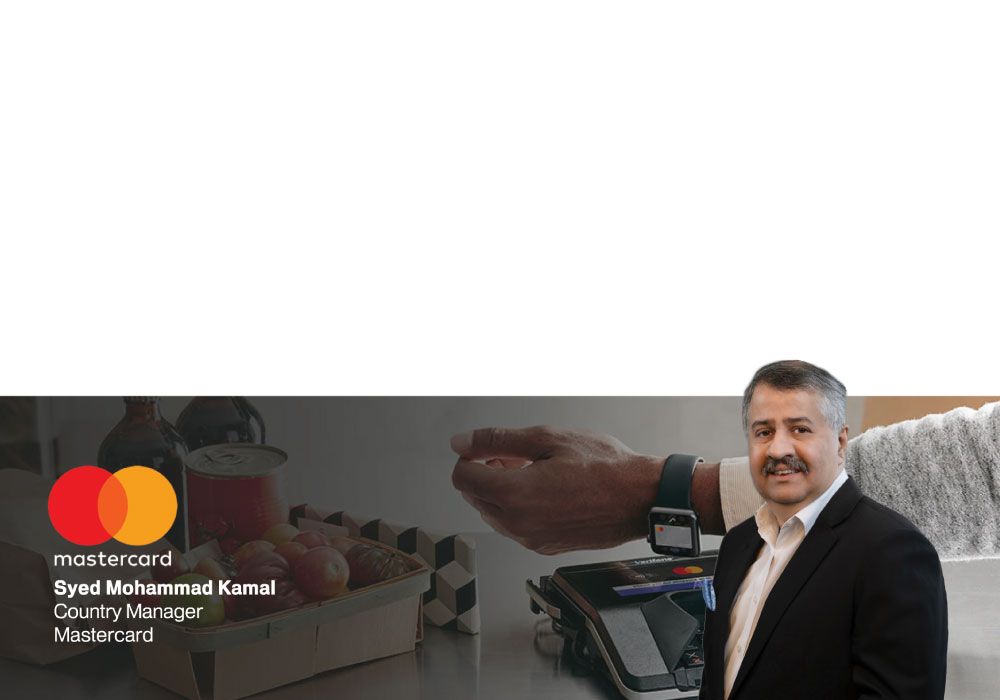- info@ficci.org.bd
- |
- +880248814801, +880248814802
- Contact Us
- |
- Become a Member
- |
- |
- |
- |
- |

Bangladesh stands on the cusp of a new economic transformation, where the digital economy can serve as a pivotal force for societal advancement. As we look towards the future, it becomes clear that the integration of digital tools and infrastructure will reshape not only our economy but the very fabric of our society.
The dynamic demographic landscape offers opportunities for socioeconomic changes. With nearly half of the popula- tion under 25 and a growing middle class of over 34 million-more than one-fifth of the total population-there is significant potential for early adoption of new technologies, particularly digital services.
Over the past two decades, Bangladesh has made significant progress in building a robust digital landscape. From expanding internet access to implementing ICT policies and financial inclusion, these steps have paved the way for a more tech-sawy and digitally inclusive society. Key sectors such as payment, healthcare, education, and e-commerce have all benefitted from this transformation with seamless payment facilities through cards & mobile financial services (MFS) have revolutionized financial inclusion. Starting from cards acceptance in Bangladesh from early 90s, the interoperable processing facilities of cards has given an extra edge. The introduction of contactless cards has tremendously accelerated and streamlined the transaction process.
In August 2024, Bangladesh reached a significant milestone with over 140.50 million internet users. This connectivity is driving unprecedented changes in how we live, work, shop, travel and access services. The payments ecosystem, in particular, has benefited from this surge, with the adoption of digital-native tools increasing ease, access, and security for millions. With a youthful population that embraces digital lifestyle, cashless payments method, now is the time to capitalize on this momentum and pivot towards a more digitally driven society & future.
 However, challenges remain. A July 2024 report revealed that Bangladesh scored just 62 out of 100 in the ICT Development Index, lagging behind the global average of 74.8. This score highlights gaps in connectivity, digital services, and gover- nance, signaling that there is still much work to be done if we are to achieve excellence in our digital infrastructure that can contribute to the lives of millions.
However, challenges remain. A July 2024 report revealed that Bangladesh scored just 62 out of 100 in the ICT Development Index, lagging behind the global average of 74.8. This score highlights gaps in connectivity, digital services, and gover- nance, signaling that there is still much work to be done if we are to achieve excellence in our digital infrastructure that can contribute to the lives of millions.
Addressing these gaps is crucial as Bangladesh transitions into a new phase of leadership and innovation. The nation must prioritize investments in financial sector, spur innovation, enhance productivity, and create new jobs.
The Impact of Economic and Political Shifts
According to a latest study by Mastercard Economics Institution (MEI) recent political shifts have added complexity to the digital economy's evolution. Supply chain disruptions, labor dislocation, and inflation have impacted growth, but there is hope on the horizon. The pace at which the economy can return to normalcy will play a crucial role in shaping GDP growth for the remainder of the fiscal year. Inflation, which reached 11.7% year-on-year (y/y) in July 2024, has shown signs of easing, falling to 10.5% y/y in August & further decreased to 9.74% in September 2024. This decline follows an average inflation rate of 9.7% y/y over the 12 months ending in June 2024, signaling that while inflationary pressures remain, there is potential for further moderation if economic conditions stabilize.
World Bank has also reduced Bangladesh GDP growth to 4% level recently for 2024-25 fiscal year.
Despite these challenges, digital payments have shown resilience. Remittances, a vital source of foreign currency, have bounced back after a temporary decline, with $2.2 billion in August & $2.4 billion in September 2024. Encouraging- ing more remittances through formal digital channels, rather than informal routes, could help stabilize the economy and boost nation's foreign reserves. The current 2.50% incentive on wage earners remittance through formal channel is making it more competitive & country is seeing a stable foreign exchange rate.
Closing the Digital Divide and Ensuring Inclusive Growth
One of Bangladesh's key challenges in its digital transformation is ensuring that no one is left behind. While digital tools are being rapidly adopted, a significant digital divide remains, particularly affecting women and rural populations. According to the Bangladesh Bureau of Statistics, only 38% of women have access to the internet. In urban areas, more than 62% of people use the internet, compared to over 46% in rural areas. This gap threatens to leave a substan- tial portion of the population behind as the country moves toward a more digital future.
Small businesses, including micro, small, and medium-sized enterprises (MSMEs), play a critical role in the global economy, contributing up to 50% of global GDP. While CMSMEs account for 90% of industrial units and 80% of industrial employment in Bangladesh, contributing 45% to manufacturing value added. Despite experiencing an annual growth rate of approximately 6%, these enterprises only contribute 25% to the country's GDP, highlighting their potential for greater impact.
To enhance their contribution, access to formal financial tools must be improved. Policies aimed at making unbanked and underprivileged cottages and micro-enterprises bankable are essential. The national industrial policy or SME policy should provide subsidized services for formal & traceable financial transactions, utilities, road connectivity, and transportation to support these businesses.
The recent launch of the first-ever credit card for CMSMEs card by Mastercard can serve as a significant catalyst for societal change in the digital ecosystem. Mastercard's exclusive solutions, including special cards for women entrepreneurs, youth, and wallet-loading services, are effectively bridging the digital divide by enhancing access to financial services. Mastercard has also launched country's first Social Media card few years back, where social media women entrepreneurs have received their first financial tool, which is experiencing a shift from cash to digital.
This integration not only simplifies financial transactions but also encourages the adoption of modern financial tools, playing a vital role in the digital transformation of Bangladesh's economy.

A Unified Vision for Bangladesh's Digital Economy
To unlock the full potential of Bangladesh's digital economy, there must be a unified vision that fosters collaboration between government, industry, and international partners. Regulatory reforms that align with mass people's needs will create a more conducive environment for digital economy. Investments in infrastructure, such as high-speed internet and payment technologies, are necessary to drive sustained growth.
Regulatory challenges, such as mandatory tax return proof for credit card issuance and high taxes on payment cards and POS machines, hinder the growth of the digital payments ecosystem. By streamlining these processes, the government can remove barriers to participation and promote broader financial inclusion. Incentivizing the retail merchants and the users for digital transactions could also drive the adoption of digital payments, making it easier for merchants to embrace digital transactions.
Public-private partnerships are crucial in addressing these challenges. By combining the expertise and resources of both the public and private sectors, Bangladesh can build a more inclusive and sustainable digital infrastructure. Reliable financial systems, widespread internet connectivity, affordable access to devices, and education in digital and financial literacy are all vital to fostering a thriving digital economy.
As we move forward, by fostering innovation, enhancing digital payment capabilities, and ensuring financial inclusion, we believe that Bangladesh can position itself as a leader in the digital economy. Together, we can create a future where technology empowers every individual, every business, and every community in the country.





